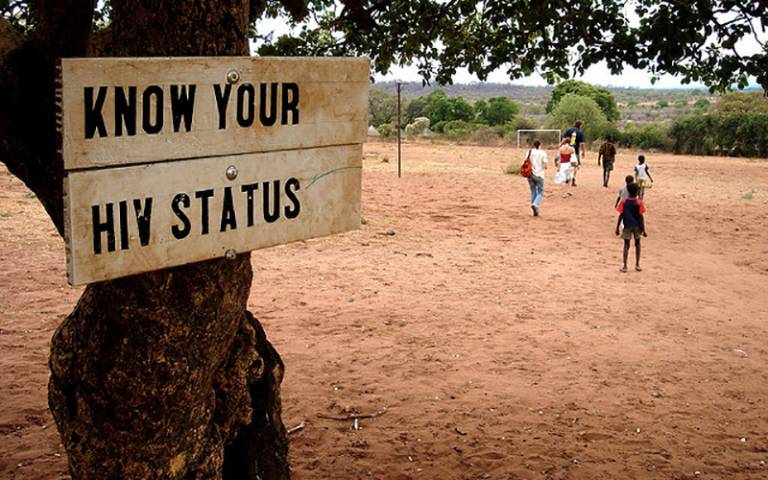Low-cost HIV drugs package saves lives
20 July 2017
An international trial led by UCL has found a package of low-cost drugs for people who start HIV treatment late can save lives.

Treating people who start HIV treatment late with a package of low-cost drugs to prevent serious infections saves three lives for every 100 people treated, according to the findings of an international trial led by UCL's Medical Research Council (MRC) Clinical Trials Unit.
The results from the REALITY trial, which involved 1805 adults, teenagers and children from Kenya, Malawi, Uganda and Zimbabwe and was funded by the MRC, the Department for International Development and Wellcome, are published today in the New England Journal of Medicine.
The trial was delivered in collaboration with the Joint Clinical Research Centre, Uganda; University of Zimbabwe Clinical Research Centre; Malawi-Liverpool-Wellcome Trust Programme; University of Malawi; Moi University Clinical Research Centre, Kenya and KEMRI Wellcome Trust Centre, Kenya.
Current practice in Africa is to start HIV treatment together with one antibiotic, cotrimoxazole, to prevent a range of infections. But when people start treatment late, HIV has already caused severe damage to the immune system and patients have very low numbers of an important blood cell (called CD4 cells) that fights infections. All of patients in the REALITY trial had under 100 CD4 cells per cubic millimetre of blood when the range in healthy people is between 500 and 1500.
The researchers recommend that people in Africa starting HIV treatment with low CD4 counts should be given the enhanced prevention package for the first 12 weeks of HIV treatment.
“Because many people with HIV in Africa do not start anti-HIV drugs until their immune system has been badly damaged by the disease, they are at a high risk of dying within the first few weeks of treatment,” explained Professor Di Gibb (MRC Clinical Trials Unit, UCL). “We found that not only did this additional drugs package prevent early deaths among people starting HIV treatment with low CD4 counts, but that it also reduced the numbers of severe AIDS illnesses and hospital admissions.”
Professor James Hakim, from the University of Zimbabwe, added: “Another important result we saw was that although the average CD4 count among the 1805 people starting treatment in REALITY was only 36 cells per cubic millimetre, which is very low, half of them had either no symptoms or only very minor ones. This shows the importance of measuring CD4 counts before starting HIV treatment, as there is no other way to identify many who would benefit from this package.”
Image: Flickr/Jon Rawlinson
 Close
Close

